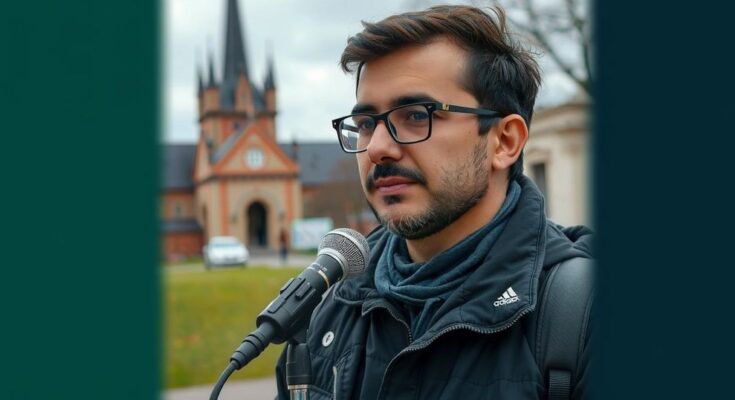Dilmurod Ergashev, a Tajik opposition activist, is set for deportation from Germany despite threats of torture in Tajikistan. This decision comes against the backdrop of Germany’s international obligations to protect individuals at risk. Concerns grow due to past deportations that led to severe mistreatment of dissidents. Activists urge authorities to halt the deportation and reassess Ergashev’s need for protection.
In a gripping turn of events, Dilmurod Ergashev, a Tajik opposition activist, faces imminent deportation from Germany, despite the lurking threat of torture upon his return to Tajikistan. An administrative court in Kleve ruled on October 28 that Ergashev should be expelled by early November, highlighting a severe violation of his rights in a nation notorious for its oppressive regime against dissenters. Ergashev, a prominent figure in Group 24, has actively campaigned against the authoritarian rule of Tajik President Emomali Rahmon. His deportation raises alarms, particularly given Germany’s obligations under international law to avoid returning individuals to places where they might suffer inhumane treatment. His previous asylum attempts were dismissed while questions about his sincerity as an activist emerged from the authorities. The recent history of deportation for Tajik dissidents in Germany adds weight to the fears surrounding Ergashev’s imminent return. Those like Abdullohi Shamsiddin and Bilol Qurbonaliev faced immediate detention and harsh sentences upon their arrival in Tajikistan. Cases of torture and long imprisonment have marred the journeys of many who have defied the oppressive regime. Ergashev, a man who has called Germany home since 2011, has passionately protested against human rights violations within Tajikistan, making him a clear target for government reprisals. Human Rights Watch has identified Tajikistan as engaging in dangerous transnational repression, further complicating the safety of activist critics abroad. His online activism and participation in protests put him at substantial risk should he be forced back to his homeland. As tensions rise, advocates implore German authorities to halt Ergashev’s deportation and thoroughly reassess his need for protection. The call to action resonates powerfully amidst international law’s prohibitions against refoulement—returning someone to danger. Will Germany heed this urgent plea and safeguard a voice standing against tyranny?
The plight of Dilmurod Ergashev reflects a larger narrative concerning the fate of political dissidents. In Tajikistan, governed by a regime that ruthlessly suppresses opposition, activists face dire consequences for their beliefs. Ergashev, an outspoken member of the banned Group 24, is emblematic of the many voices risking everything for freedom. His history of seeking refuge in Germany only underscores the precarious balance between safety and persecution in a world where dissent can lead to severe retaliation, not just in one’s home country but even abroad.
Ergashev’s case is a striking reminder of the perils faced by political activists worldwide, particularly within oppressive regimes like that of Tajikistan. His potential deportation epitomizes the grave risks involved in activism and highlights the pressing need for international adherence to the protections against refoulement. As the deadline looms, the call for justice resonates not just with Ergashev, but with all those who dare to challenge tyranny.
Original Source: www.hrw.org



